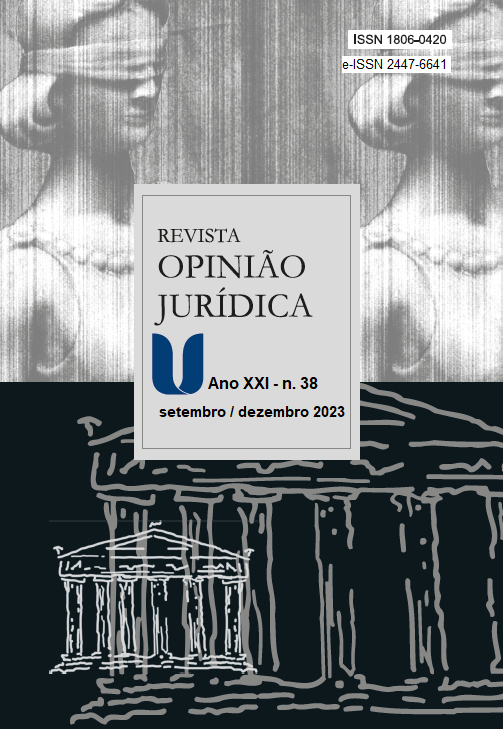THE FUNDAMENTALS OF CIVIC REPUBLICANISM IN ROUSSEAUNIAN CONSTITUTIONALIST THOUGHT
DOI:
https://doi.org/10.12662/2447-6641oj.v21i38.p73-102.2023Keywords:
Rousseau, republicanism, civic virtues, constitucionalismAbstract
Context: The philosophy of the Geneva thinker Jean-Jacques Rousseau (1712-1778) was of fundamental importance for the development of the constitutionalist mentality and, mainly, the principles of republicanism, as an axiological-normative orientation in favor of the so-called "common good", understood as the set of goods and values essential for the development of the community. Moreover, republican theses see freedom not only as a right, but above all as a duty. In this sense, republicanism presents, at its core, a new understanding of freedom, facing it from the role of the individual in the organization of political power.
Objective and Methodology: In this way, Rousseau's discussions about the so-called "general will", civic virtues, freedom as self-regulation and the sovereignty of the collective body establish a central dialogue with the neuralgic elements of the republican cosmovision, whose reflections are of great value for a better understanding of contemporary democratic weaknesses and the crisis of liberal democracy. Based on the deductive approach methodology, the present work was built with the use of bibliographic sources.
Conclusion: It is observed the imprescindibility of the structuring of democratic constitutionalism based on mechanisms that favor a deontological understanding of civil liberty, above all, for a better realization of the principle of the dignity of the human person.
Published
How to Cite
Issue
Section
License
Copyright (c) 2023 Revista Opinião Jurídica (Fortaleza)

This work is licensed under a Creative Commons Attribution-NonCommercial-ShareAlike 4.0 International License.
CESSION OF COPYRIGHTS
The submission of articles to analysis for publication on Opinião Jurídica implies the author(s) transfers copyrights to Centro Universitário Christus – UNICHRISTUS for reproduction, publicizing, distribution, printing and publication, according to the Publication Norm 414R, Opin. Jur., Fortaleza, year 12, n. 16, p.1-414, Jan./Dec. 2014, costs to be bore by UNICHRISTUS, in whatever format or means that may or shall exist, in accordance to articles 49 and following of Federal Law 9.610/98.
1. In ceding copyrights, the author(s) agrees to do so in exclusivity, free of charge and for the totality of the work.
2. UNICHRISTUS may make the work, in its entirety or in parts, available for scholarly purposes, without altering its contents, except for small corrections that are deemed necessary.
3. The cession of copyrights is valid in all countries and for versions of the material in its original language or translated into a foreign language.
RESPONSIBILITY FOR THE CONTENT
By submitting an article, the author(s) declare to have sole responsibility for the content of the piece and is(are), therefore, responsible for any judicial or extrajudicial measures referring to it.
1. In case of joint authorship, all authors are considered collectively responsible, except when proved otherwise.



















